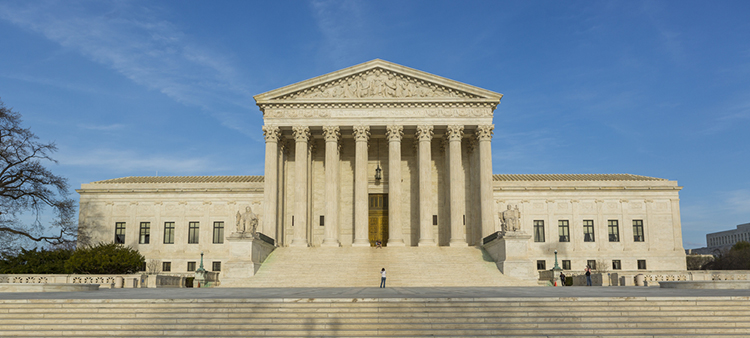Will Supreme Court issue 'non-opinion' in partisan gerrymandering case?

Shutterstock.com.
U.S. Supreme Court justices appeared troubled by partisan gerrymandering allegations in oral arguments Wednesday, but they did not appear to have a plan to address the problem.
At issue is whether it is unconstitutional to redraw voting district lines based on partisan considerations. The plaintiffs in the case, Benisek v. Lamone, allege that congressional redistricting in Maryland targeted a Republican in one district in violation of the First Amendment.
The Supreme Court has never struck down a voting district because it is an unconstitutional partisan gerrymander, and it wasn’t clear that the court was ready to place limits on such redrawing of voting district lines, the New York Times reports. Other publications covering the case included the Washington Post, USA Today and the Wall Street Journal.
The Post describes the arguments this way:” At least one justice thinks the courts have no business second-guessing the political decisions of elected representatives. Others worry about being drawn into every redistricting dispute between Democrats and Republicans. And even the justices who see gerrymandering as an evil are torn about the constitutional test that should be applied.”
After reading transcripts and coverage of arguments in Benisek v. Lamone, University of California at Irvine law professor Richard Hasen raises the prospect of a “non-opinion” in the case.
“Just look at the words in the headlines of articles rounded up by [How Appealing] from today’s arguments: ‘no consensus,’ frustration,’ ‘elusive,’ ‘struggle,’ ‘grapple,’ ‘befuddle,’ ” Hasen wrote on his Election Law Blog.
Things were so bad, Hasen writes, that Justice Stephen G. Breyer suggested setting the case from Maryland for reargument with another partisan gerrymandering case from Wisconsin, Gill v. Whitford, and with a North Carolina case that is “waiting in the wings.”
Because Benisek involved a preliminary injunction, rather than a final decision on the merits, “it would be very easy for the court to issue a non-opinion getting rid of the case at this stage and putting the issue off for a few years,” Hasen writes. Justices could also avoid an opinion on the constitutional issue in the Wisconsin case by disposing of it “on technical grounds like standing,” Hasen says.
Justice Anthony M. Kennedy is the likely swing vote. Waiting to make a decision on the merits at a later date could mean the issue will be resolved without Kennedy on the court, if he decides to retire, Hasen says.
If the court “puts the issue off for another day, the last best chance to rein in partisan gerrymandering by the federal courts may be lost for at least a generation,” Hasen writes.
Removes duplicated word in second graf at 11:19 a.m.



